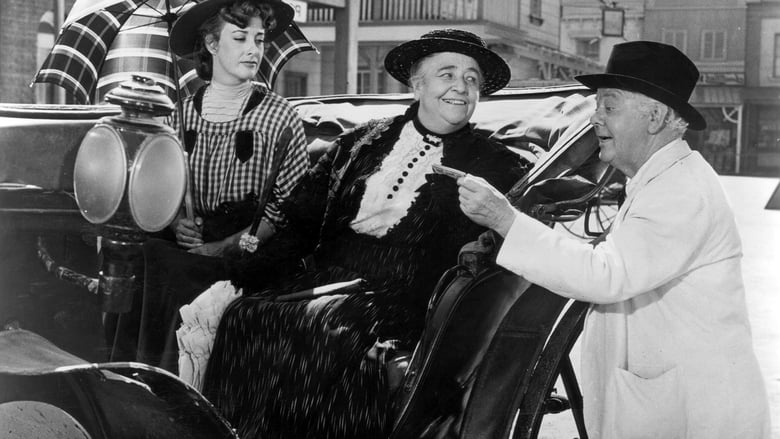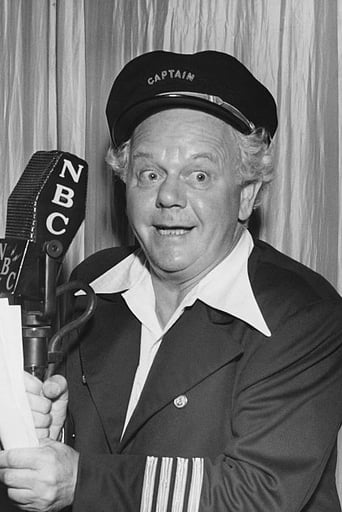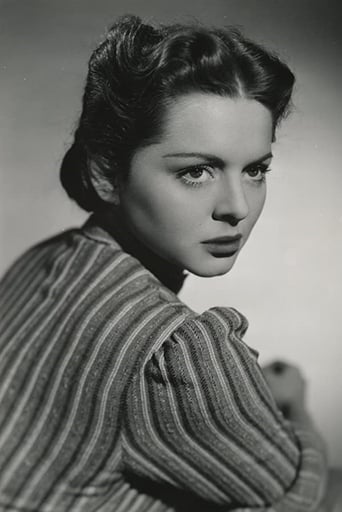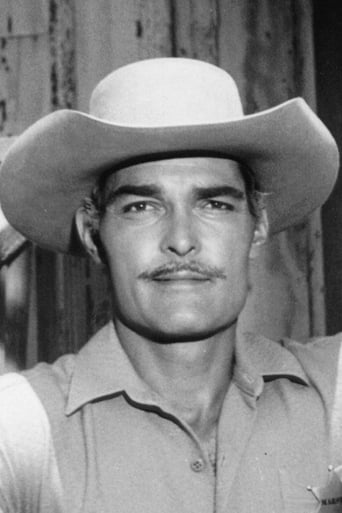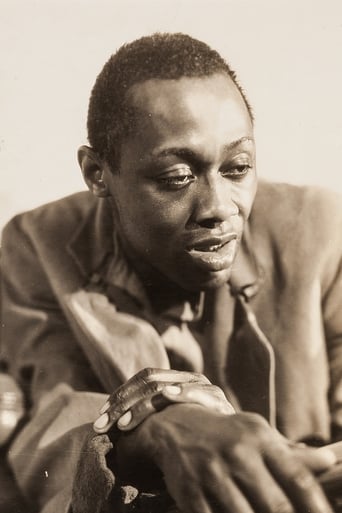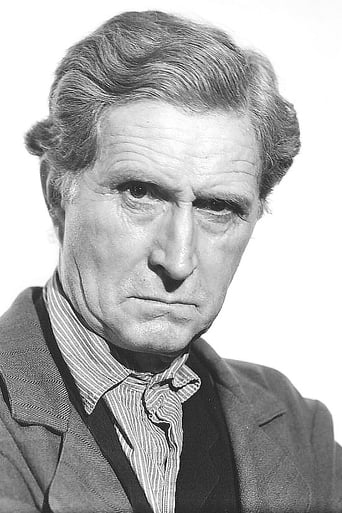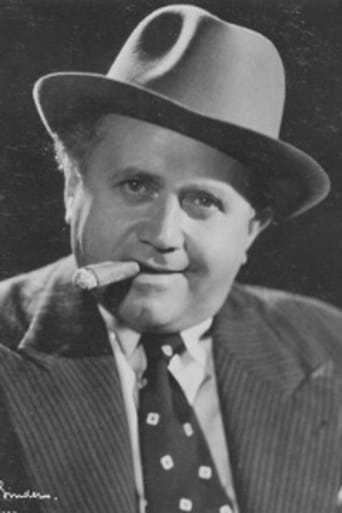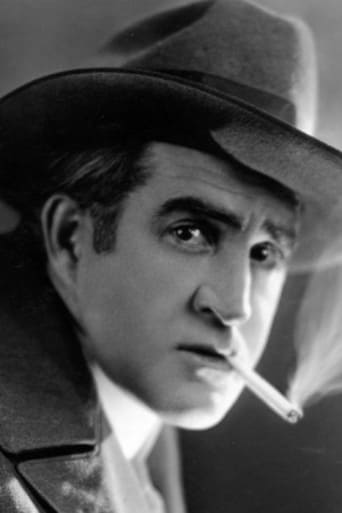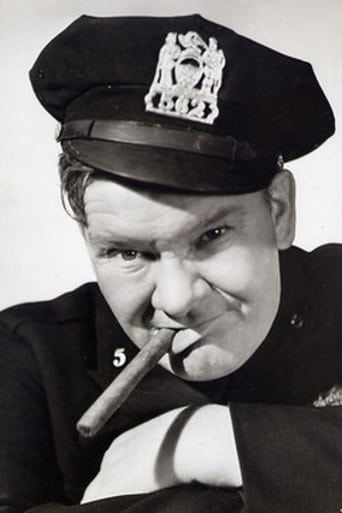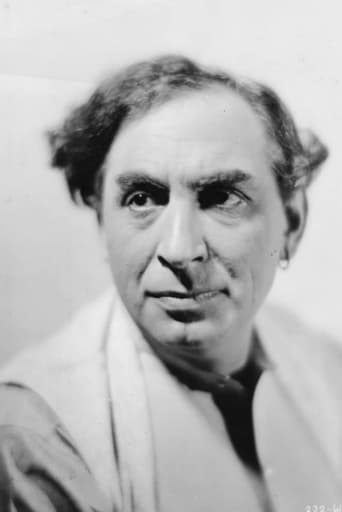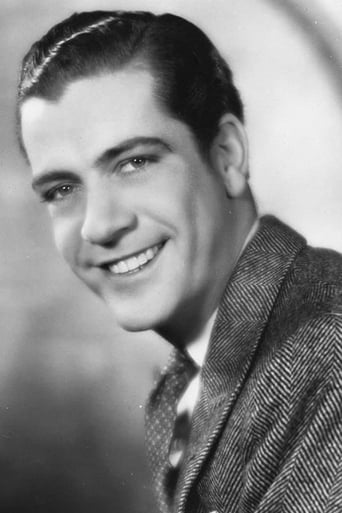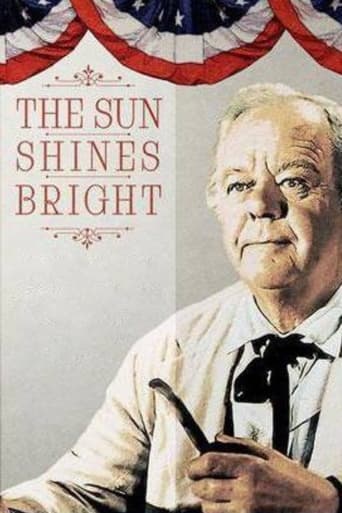
With the election approaching, a judge in a Southern town at the turn of the 20th century is involved variously in revealing the real identity of a young woman, reliving his Civil War memories, and preventing the lynching of an African youth.
Similar titles
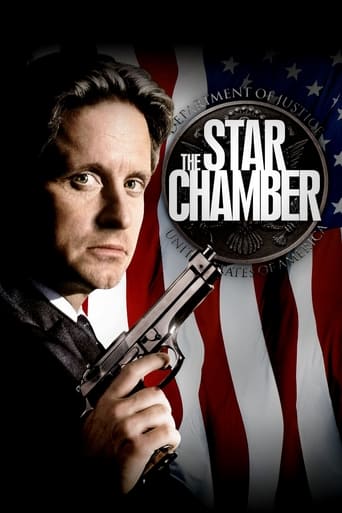
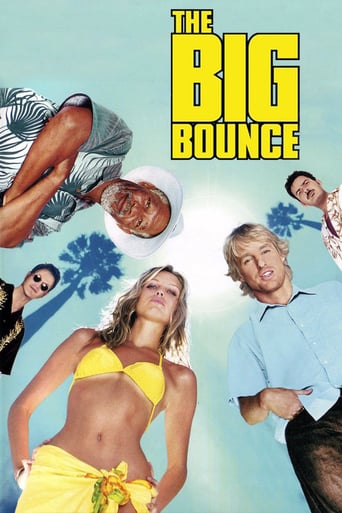
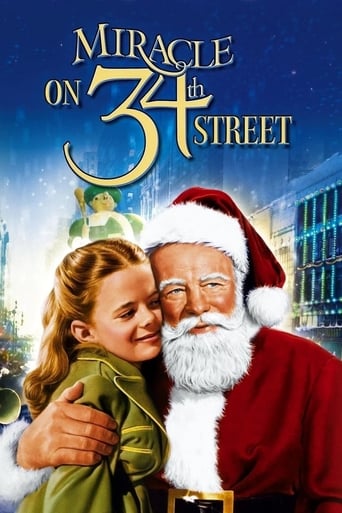
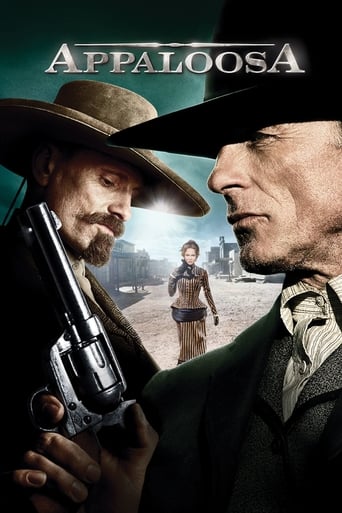
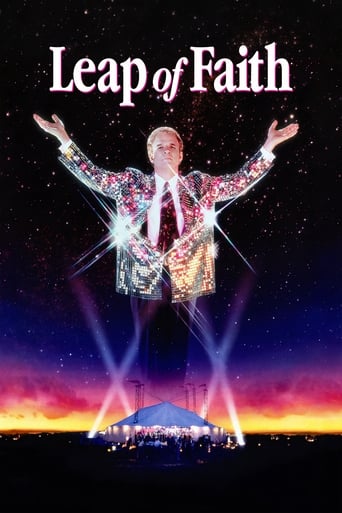
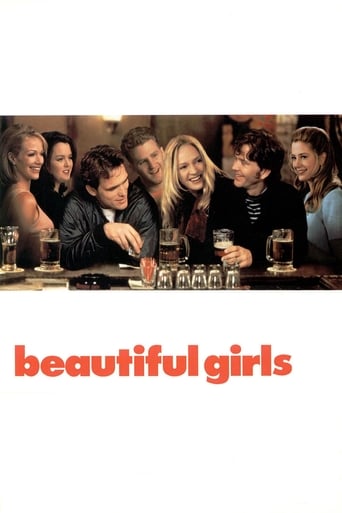
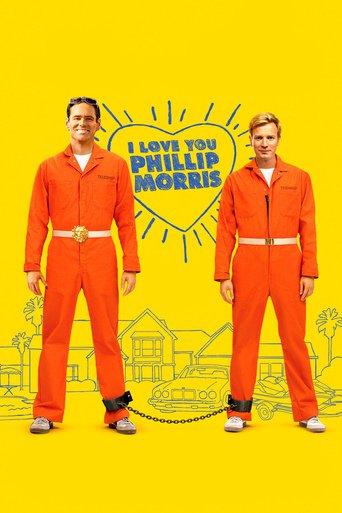
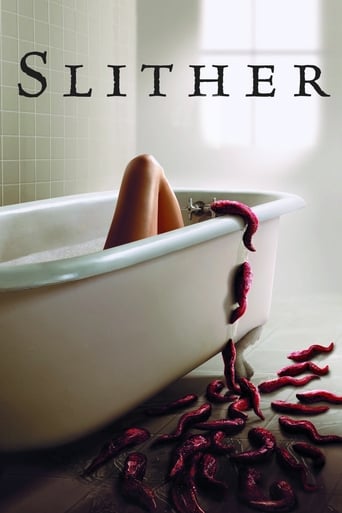
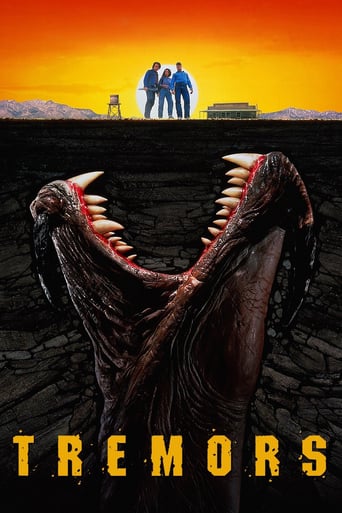
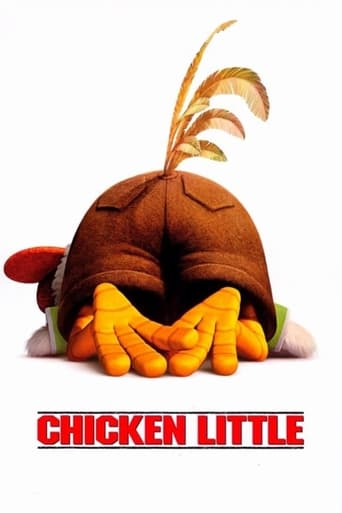
Reviews
Just perfect...
Beautiful, moving film.
Blistering performances.
The film may be flawed, but its message is not.
While I admire John Ford's work, I knew enough about his weakness for low comedy and sentimentality so that I did not look forward to seeing this obscure movie (even though he often called it his favorite). And indeed the picture turned out to have these qualities in abundance. Nevertheless, I enjoyed "The Sun Shines Bright," finding it well made and at times moving.Judge Priest (ably portrayed by Charles Winninger) provides a strong moral core in the movie. He is a kind, tolerant man who combines a down to earth closeness to the people and traditions of his community with an integrity and conscience that earns the respect of those around him and sets him apart. In the final shot of the Judge, we stand outside his house and watch through his open doorway as he disappears into the darkness inside. It's the exact inversion of the closing scene in "The Searchers," when we look through the door at John Wayne, left outside and apart from the people in the house.Cornpone humor and sentimentality aside, there is much in the film that is John Ford in concentrated form--his love of folk music and marches, for example. Most of all, there are his magical set pieces that capture his intense feeling for how communities work--the temperance ladies' dance, the lynch mob, and the funeral for the "fallen woman." The funeral in particular is a wonderful sequence.As others have pointed out, the movie is very politically incorrect from the viewpoint of today--and in fact from the viewpoint of the last 50 years. This may explain its obscurity. There is the chorus of singing black folks who "know their place," the sentimental nostalgia for the Confederacy, and, most of all, the mere presence of Stepin Fetchit in the movie. As I see it, these things are not just politically incorrect but just plain wrong.Nevertheless, far from being a bigot or reactionary, John Ford was an artist of great spirit and vision. Even in this movie, some of the black characters are anything but stereotypes. We have to grant Ford the limitations of his time.
It would be nice to be able to discuss this film without having to refer to its politically incorrect depiction of blacks, but it's impossible to do so. The film, which is a remake of director John Ford's own Judge Priest from the 30s (in which Will Rogers played the title role), must have seemed curiously dated even when it was released, and feels like it was made in the early forties rather than the mid-fifties. Whether that's because of its outdated attitude towards blacks and the presence of slow, scratchy-voiced Stepin Fetchit is open to conjecture – it could just be that the fog of nostalgia that hangs over the entire work is the reason.Charles Winninger makes an amiable old judge whose quiet wisdom puts to shame the hypocritically puritanical attitudes of his small town's people and the racist assumptions of an unruly lynch mob out to hang a blameless teenage Negro. The storyline is kind of meandering, reflecting the apparently relaxed pace of life in the turn of the century Deep South, and you do really get a taste of Southern gentility – whether accurate not. Its various sub-plots are linked together by the judge's bid for re-election, which serves to emphasise the importance of standing by one's principles no matter what the possible personal costs may be. Of course, the truth is Billy Priest is too good to be true, but I don't think anyone was out to make him a more realistic figure in this milieu than Santa Claus or God would have been.John Ford's notorious sentimentality is in danger of becoming cloying at times, but he just about manages to rein it in at key moments. The film says as much about Hollywood's take on American social attitudes in the mid-50s as it does about the same in the Deep South at the turn of the century, which isn't in itself a bad thing. I suppose it's even possible that one day films like this will be shown in classrooms to demonstrate the gigantic positive strides made in the cause of racial equality in the latter half of the 20th Century. Better that than they are wilfully ignored in the name of political correctness.
One of the odd aspects of this film is the post Civil War background that looms large to a greater or lesser degree throughout. This takes the form of a blatantly obvious pro Confederate stance, and an almost religious idolatry of 'Dixie'. Halliwell tells us that Judge Priest, the moral heart of the film, "has trouble quelling the Confederate spirit" - but the opposite is the case - the judge is absolutely central to maintaining and celebrating that spirit. The oddness comes because, it seems to me at least, we are not used to seeing such a character defending black rights, preventing a lynching, etc. Even more peculiar is to see such a 'happy' black population - particularly the quite disturbing courthouse scene where 2 black characters suddenly burst into a grotesque song and dance routine. "Mississippi Burning" this certainly isn't! But certainly a film worth watching, and the prostitute's daughter's funeral scene is excellently done. It somehow feels older than 1953.
I feel like I have to walk over eggshells to say anything at all about this movie, Ford's remake of his earlier, 1934 Will Rogers vehicle Judge Priest. Both films have some hard-to-take racial stereotypes, first and foremost in the personage of Stepin' Fetchit, who, along with Butterfly McQueen, stand as the ugliest black performers of their era. But the offense doesn't stop there. The Sun Shines Bright contains a plethora of objectionable material, some of which probably well deserves to be objected to, and some of which will be construed as hateful by modern audiences when it really isn't. The story concerns an aging judge running for re-election in Kentucky, somewhere near the Mason-Dixie line around the turn of the 20th Century. Judge Priest is a Confederate veteran, as are many of his friends. They celebrate this with open nostalgia, although there isn't really any hatred between them and those in the county who fought for the North. The main story of the film is of Judge Priest's deep humanity, and his love for all people. There are two main plot threads, that of a lynch mob out to hang a young black man and that of a dying prostitute, who happens to be the long absent mother of one of the town's outstanding young women. Priest must defend the black man from the mob and arrange a dignified funeral for the prostitute, even though it very well could cost him the election. The film's treatment of African Americans seems quite more in tune with the 1930s than the 1950s. The original film, Judge Priest, might be less offensive, actually. Yes, the blacks in that film were caricatures. However, the star of that film, Will Rogers, who famously never met a man he didn't like, seemed more like a friend to the African Americans around him, including Stepin' Fetchit and Hattie McDaniel. He even sings with McDaniel at one point. Priest in that film seems something of an outcast from the whites; they respect him, even love him, but he is not exactly one of them. In The Sun Shines Bright, Priest spends most of his time with his fellow veterans. Stepin' Fetchit is there most of the time, too (he even attends a veterans' meeting with a gray cap on his head), but he and Priest don't seem like buddies. Fetchit is his servant. Even though Fetchit and McDaniel were also his servants in the earlier version, like I said, they seemed more like friends. When Judge Priest helps out the African Americans of his county in the later version, his actions seem more patronizing than friendly. He is the father figure to every black person. At the end of the film, it almost seems like they're worshiping him. Worse yet, when the election is held, we see everyone vote except for the blacks. It's not even implied that they have already voted. Despite these very important problems, The Sun Shines Bright is a very good film that would indeed inspire a deep love for humanity long before it would ever inspire bigotry. I would never dismiss the problems of the film, but I think that what it accomplishes is much more valuable than what most would damn it for. 9/10.
Top Streaming Movies











